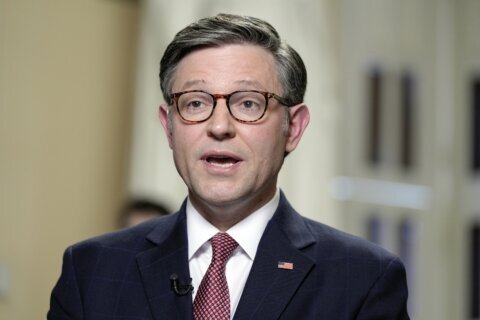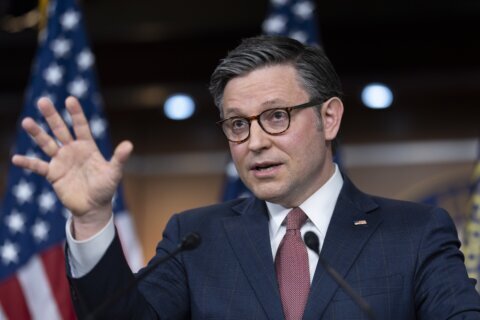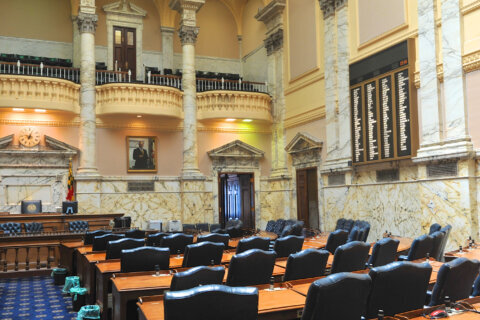▶ Watch Video: Some states roll back restrictions as COVID cases fall
Washington — The Biden administration is gauging potential support on Capitol Hill for $30 billion in new federal funding to pay for the ongoing response to the COVID-19 pandemic, with a focus on more money to pay for testing, treatment programs and development of vaccines to fight the virus and future diseases.
The issue of additional aid has been the subject of discussions across Washington in recent weeks, and White House press secretary Jen Psaki confirmed the administration is seeking more money to address future needs.
“While we continue to have sufficient funds to respond to the current Omicron surge, in the coming weeks, our goal has always been to ensure that we are well-prepared to stay ahead of the virus,” Psaki said at a White House briefing on Tuesday.
The new money would come after Congress has already allocated record-setting sums totaling trillions of dollars to buoy the American economy and beleaguered state and municipal governments reeling from a lack of tax revenue caused by the COVID downturn. But with states and cities lifting COVID-related restrictions and the economy continuing to grow at a record pace, the political appetite for more federal funding is unknown.
A source familiar with the matter said the administration’s request includes roughly $18 billion for COVID-19 treatments and vaccines, $5 billion to boost testing efforts and $3 billion to reimburse providers for testing and treating the uninsured. The administration also wants $4 billion to prepare for the emergence of future variants, including research and development of vaccines.
The request for new potential spending came up in meetings Tuesday between administration officials and congressional staff working on forthcoming federal spending legislation, people familiar with the meeting tell CBS News.
A spokesperson for the Department of Health and Human Services confirmed to CBS News that the issue came up Tuesday as part of regular conversations with lawmakers and congressional staff about funding for the pandemic, “as well as the need for additional resources to support securing more life-saving treatments and vaccines, sustaining testing capacity, and investing in research and development of next-generation vaccines. These resources would help us continue expanding the tools the country needs to stay ahead of the virus and help us move toward the time when COVID-19 will not disrupt our daily lives.”
The idea of adding additional COVID relief funding to the yearlong spending package is already meeting resistance among lawmakers who control the appropriations process.
“I’m not eager to add anything,” Vermont Democratic Senator Patrick Leahy, chairman of the Senate Appropriations Committee, told reporters Tuesday. “It has taken several months of negotiation to get where we are.”
Leahy said he would consider any proposals from the administration, but that “it should probably be a separate bill.”
Earlier in the day, Senate Majority Leader Chuck Schumer said the administration had not yet submitted a proposal to lawmakers, but acknowledged the need for more pandemic-related assistance.
“They haven’t sent us a relief package yet, but obviously we’re going to have to do something,” Schumer told CBS News on Tuesday.
The request for additional funding comes as Leahy and other House and Senate negotiators are hoping to complete a final spending package by March 11 — when the current short-term spending plan expires — that would fund the federal government through the end of the fiscal year in September. The agreement, which requires bipartisan support, would be the first of the Biden presidency and of unified Democratic congressional control. Democrats are eager to complete a spending package before the midterm election season begins in earnest and as polls continue to show they are likely to lose control of at least one congressional chamber.
One person familiar with the ongoing talks said there could be an appetite among GOP spending negotiators if the White House request is focused on new, unanticipated needs. But Republican negotiators have argued that there is still a considerable amount of unspent federal money provided to states, cities and school districts by relief packages passed last year and during the Trump administration. And there is bipartisan concern about how record-high inflation should shape the final agreement.
Nikole Killion, Jack Turman and Rebecca Kaplan contributed to this report.







